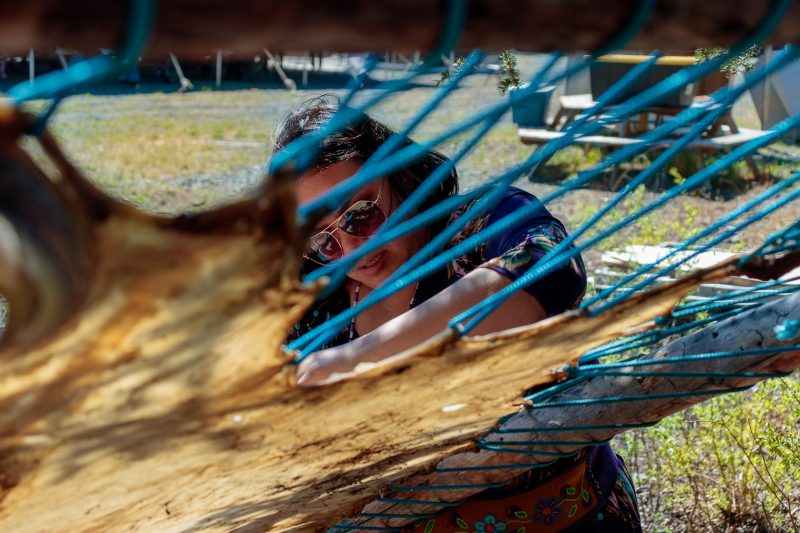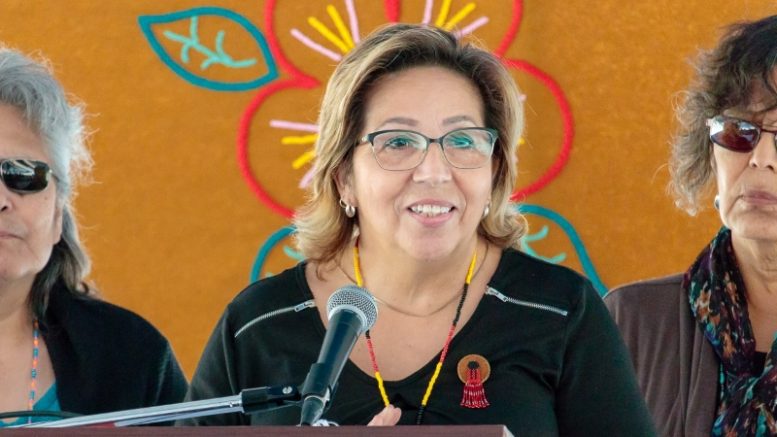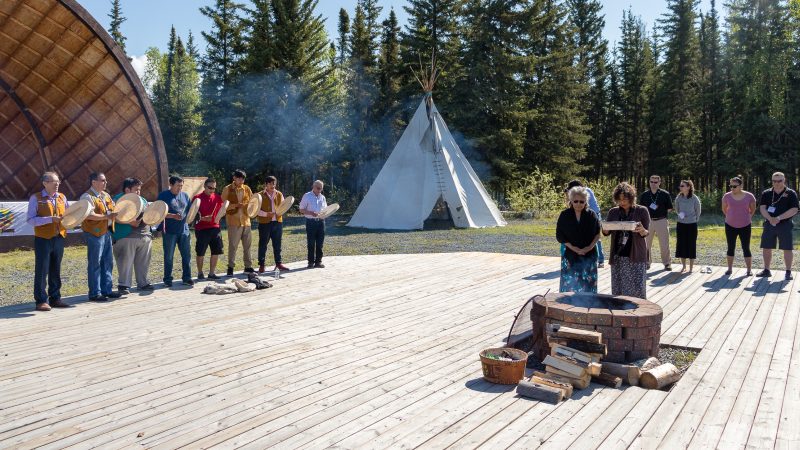Warning: this story contains details of an assault.
When Chuckie Nicotine was 17 years old, she hopped into a truck to go get groceries with a male relative.
After getting what they needed, he stopped for a few drinks. Nicotine waited in the car.
On their way back after the bar, he stopped on one of the back roads and went to grab something from the trunk of the car.
He opened the passenger door and pointed a gun at her head. He told her if she wanted to live then she had to do what he said.
Today, Nicotine says she doesn’t remember much of the assault but that it felt like “a bad lucid dream”.
When he was done, he drove off, leaving her alone on the side of the road in the middle of the night.
It was dawn when Nicotine got up and started walking back to town.
“I didn’t cry,” she says, “and I didn’t cry for the next 40 years.”
Chuckie Nicotine was the guest speaker at this weekend’s gathering for Missing and Murdered Indigenous Women and Girls hosted by Yellowknives Dene First Nation.
It was the first time she told her story publicly.
After sharing, she reassured the audience that her message was one of hope.
“I stand here before you today because of hope,” she said. “The reason I say not to ever give up is because I want to live a good life.”
Nicotine has made strides towards that life: she recently became a certified facilitator. She also says that she’s working on not being so controlling. She says she finally feels like she’s “becoming a person again.”
By sharing her story, she hopes to encourage and inspire other women to talk about their experiences, to begin their healing.
Support from within
Stacey Sundberg said it was important to have the event at the Wiiliideh site to commemorate elders and ancestors.
“It’s very important to come support and share with each other,” she said. Sundberg hasn’t been affected directly by having a family member murdered or gone missing; she sees her role to help families that have gone through that kind of tragedy.

Stacey Sundberg tanning a moose hide. There was also a beading station, and meat smoking. (Francis Tessier-Burns/CKLB).
“Women from small communities need to watch out for each other,” she says. “We need to empower each other… and make sure that we’re not falling through the cracks into abuse.”
For Sundberg, that empowerment can come in many different forms: from more Indigenous women becoming counsellors, to simply telling young women and girls “You’re important.”
The event featured a handful of other speakers including Dene National Chief Norman Yakeleya.
He spoke about how Dene men rely on women, calling them the “backbone of the nation.” He then turned towards the role men have to play in ensuring women feel safe.
“We have an obligation in our teachings to protect women, and we have not owned up to that responsibility,” he said. “We blame government, we blame another culture, we blame a lot for what we do in our life today… Sometimes we don’t like that reminder.”
Later he said, “For us Dene, our first step is to forgive the unforgivable to start the healing.”
Jane Weyallon is the president of the Native Women’s Association of the NWT. She delivered a message for everyone to hear: “Just because we are First Nations women, that does not give anyone the right to violate our rights to exist.”






